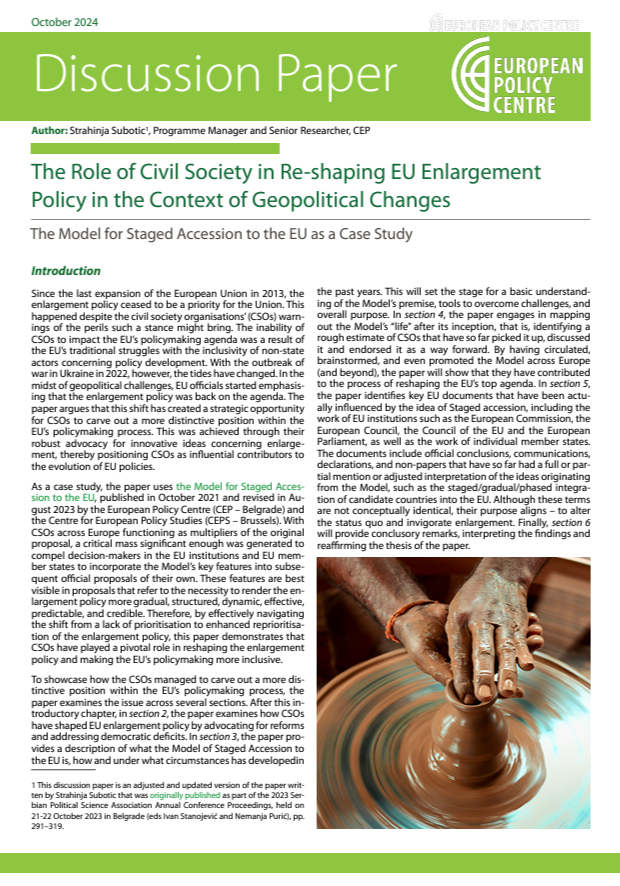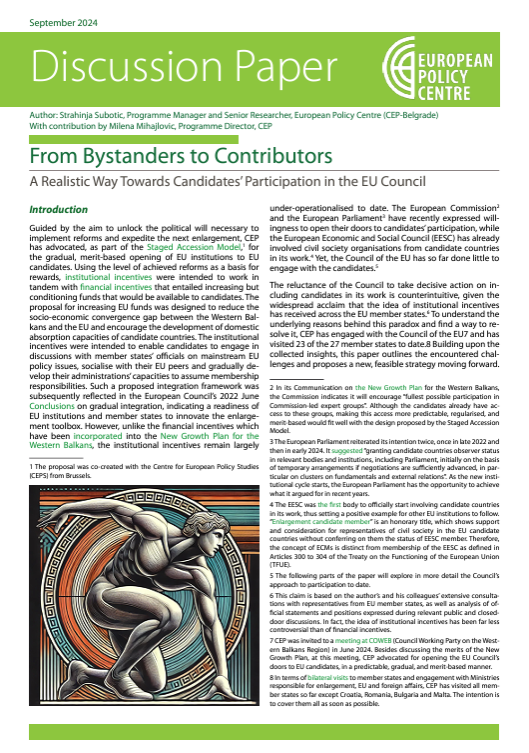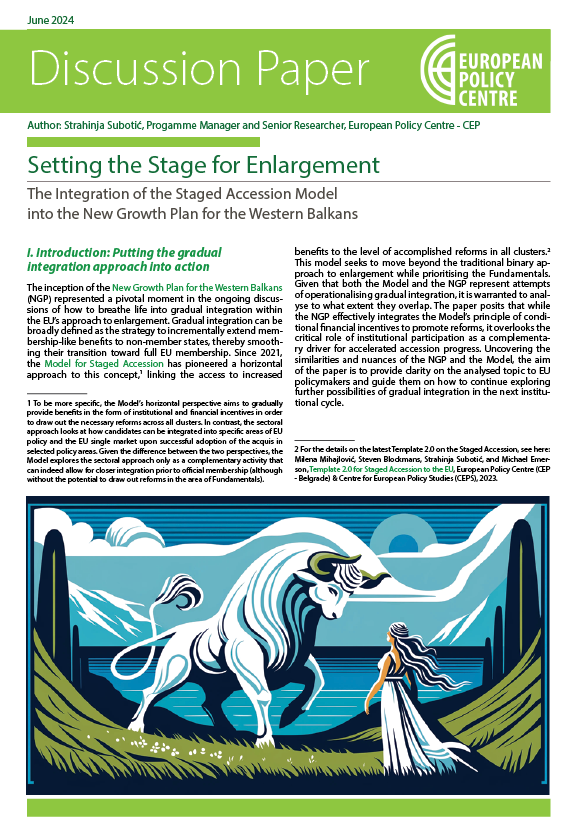Headquarters: Svetog Nauma 7, 11000
Office address: Đorđa Vajferta 13, 11000
Phone:: +381 11 4529 323

This publication has received funding from Progres Institute and Kalevi Sorsa Foundation’s Think Tank Grant Program. The Grant Program is supported by the Finnish Ministry for Foreign Affairs. The views and opinions expressed herein do not necessarily reflect those of the Progres Institute, the Kalevi Sorsa foundation, or the Finnish Ministry for Foreign Affairs
Democracy and functioning democratic institutions are some of the key criteria and necessary prerequisites for a country to join the European Union (EU). First established at the Copenhagen European Council summit, as part of the so-called political criteria, it was additionally strengthened in 2020 with the Revised Enlargement Methodology (REM) by placing the sub-area ‘Functioning of democratic institutions’ (FoDI) in the Fundamentals cluster (Cluster 1). In that sense, the role of the European Commission (EC) and its annual country report for candidates serve as the most relevant source of information for the state of play in this area on which important decisions within the accession process are made, by EC and other EU competent bodies. The importance of credible reporting in the FoDI area has been once again confirmed by the decision of the European Council (EUCO) to start accession negotiations with Ukraine and Moldova, highlighting the necessity in their respective negotiating frameworks for preparing a roadmap for the functioning of democratic institutions. Finally, the newly adopted Growth Plan for the Western Balkans emphasises the Fundamentals as a condition for EU financial support.
The FoDI is the sole area in the EC’s reports that does not provide an assessment of the progress and preparation levels of candidate countries. Moreover, this is the only segment of the Fundamentals without a proper qualitative assessment – standing in contrast to areas on the Economic Criteria and Public Administration Reform (PAR). The research focused on the Commission 2022 Enlargement Package for the Western Balkan countries and found inconsistencies in the EC’s approach to reporting FoDI, especially for the Governance and Civilian oversight of the security and intelligence sector sections. The European Policy Centre (CEP) has, based on the findings of its three analyses on the Commission’s reporting on FoDI, provided certain recommendations to this EU body on how to improve its reporting. Key recommendations suggest improving consistency, providing assessment, and deepening and expanding the scope and quantification of reports in this segment. Finally, CEP developed a model for quantification of the FoDI area based on a mixed approach using publicly available renowned democracy indexes.
However, preliminary estimations indicated that many of the last year’s recommendations were not adopted, warranting another detailed overview of the subsequent annual reports. Thus, this paper aims to replicate last year’s analysis using the methodology developed for scrutinising the 2023 Enlargement Package – EC’s annual country reports for six Western Balkan countries. In order to see whether and to what extent the EC continued making the same mistakes and to track the developments over time, a replication study is warranted. In the first section, the paper will test for consistency of reporting in the FoDI area, providing a statistical calculation of how coherent and consistent the 2023 Enlargement Package among the WB countries was. The second section will discuss key findings regarding consistency and engage in the debate of standardised reporting against technical and national context-adjusted reporting. The third section will utilise the Mixed Approach Model to calculate and quantify the whole area of Functioning of democratic institutions for all six WB countries. That will allow for tracking reforms in this area over time and paint a clearer picture of the state of affairs of the whole Western Balkan region. Finally, this paper will offer a comparative analysis of the 2022 and 2023 Enlargement Packages in the FoDI area, both in terms of consistency of reporting and quantification of the state of play in six countries. Comparative analysis will provide a regional as well as in-country assessment on a year-by-year basis.


